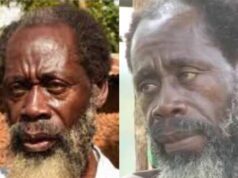Nigerian writer Lesley Nneka Arimah has won a prestigious prize for her story about a parallel universe where single women go naked until they are married.
She has been awarded $12,500 (£10,000) for her winning Caine Prize for African Writing story called Skinned.
Arimah told the BBC its underlying message was to show the disparity in the treatment of married and unmarried women in Nigeria.
The judges said it was “unique retake of women’s struggle for inclusion”.
“Lesley Nneka Arimah’s Skinned defamiliarises the familiar to topple social hierarchies, challenge traditions and envision new possibilities for women of the world,” said Kenyan author Peter Kimani, who was the the chair of the judging panel.
“Using a sprightly diction, she invents a dystopian universe inhabited by unforgettable characters where friendship is tested, innocence is lost, and readers gain a new understanding of life,” he said at the awards dinner in London on Monday evening.
Skinned follows the fortunes of Ejem, who comes from a culture where girls must remove their clothing at a certain age and go naked until they are claimed by a husband.
Arimah, who born in the UK and grew up in Nigeria, told the BBC’s Newsday programme that she was inspired by a conversation with a friend about how marriage in Nigeria “gives unconventional women cover to be themselves”.
“She is quite strange and her strangeness was something her parents had warned her that she should get rid of in order to get married,” Arimah said of her friend.
“When she got married, without compromising, everything that was strange about her was suddenly OK.”
The Caine Prize was launched in 2000 and is awarded annually to an African writer of a short story published in English.
This is an short extract from Skinned:
“She had cried when, at 15, her mother had come into her bedroom and, stroking her hair, told Ejem that it was time to remove her cloth. The only people who could get away with keeping their daughters covered for long were the wealthy, who often managed it until the girls could secure wife-cloth.
“But Ejem’s father had grown up a poor man in a village where girls were disrobed as early as possible, some even at age 10, and it was beyond time as far as he was concerned.”
The other Caine Prize shortlisted stories this year were: Tochukwu Emmanuel Okafor’s All Our Lives, Ngwah-Mbo Nana Nkweti’s It Takes A Village Some Say, Cherrie Kandie’s Sew My Mouth, and Meron Hadero’s The Wall.
credit: BBC





























